Hello everyone! We have some important news to share regarding our company's future. After careful consideration and analysis, we have made the difficult decision to initiate the process of liquidation. We invite you to read on for more details about what this means for our team and stakeholders.

Company Name and Logo
[Company Name], a leading provider of [specific products or services] in [industry or market], has made the difficult decision to initiate the liquidation process as of [date of announcement]. The liquidation results from [brief explanation of circumstances, such as financial difficulties, market changes, or unforeseen events], affecting our operations and ability to continue servicing our valued customers. Our physical location at [address of headquarters] and myriads of customers have greatly contributed to our identity over the years. We sincerely thank our dedicated employees, loyal clients, and supportive partners who have journeyed with us. All outstanding matters will be addressed, ensuring a structured process for stakeholders. We commit to transparent communication during this time, as we finalize our operations and settle remaining obligations. Further updates will be communicated through our website at [website URL].
Closure Announcement Statement
Company liquidation represents a significant event that impacts operations and stakeholders. Effective liquidation processes, often initiated when a company can no longer meet financial obligations, involve settling debts and distributing remaining assets among creditors and shareholders. Awareness of the legal framework, such as insolvency laws specific to each jurisdiction, is essential. Precise timelines for asset liquidation, often ranging from a few months to several years, can differ greatly depending on the complexity of the company's financial situation. Additionally, communication with employees, customers, and suppliers is crucial, as these parties need clear guidance regarding their rights and potential compensation. Conducting a transparent liquidation process ensures accountability and maintains stakeholder trust during a company's final chapter.
Reason for Liquidation
Company liquidation often arises due to various circumstances, including financial difficulties, market changes, and strategic reevaluations. These situations can result from declining sales figures, increasing operational costs, or insurmountable debts that exceed assets. In some instances, shifts in consumer demand or technological advancements may render a business model obsolete, as seen in industries like retail or manufacturing. External economic pressures, such as recessions or regulatory changes, can further exacerbate financial instability. Ultimately, the decision to liquidate aims to ensure a structured process for settling debts and distributing remaining assets, highlighting the need for transparency and communication during this challenging transition for stakeholders and employees.
Important Dates and Timelines
Company liquidation is a formal process that involves winding up the affairs of a business, and it is crucial to communicate important dates and timelines to stakeholders. The initial announcement typically includes the date of the decision (often made by the board of directors), which marks the start of the liquidation process. Following this, a creditors' meeting is scheduled, usually within 21 days, to discuss the financial status and distribution of assets. Claims submission deadlines are established, typically ranging from 30 to 60 days after the initial announcement, allowing creditors to submit their claims. Final settlement of debts and distribution of remaining assets to shareholders occurs after asset liquidation, which can take several months, varying by the complexity of the business's financial situation and regulatory requirements. It is also important to note significant dates for regulatory notifications and public announcements to ensure transparency throughout the process.
Contact Information for Queries
Company liquidation can significantly impact employees, shareholders, and creditors involved. The announcement typically requires careful consideration of essential details such as the liquidation date, reasons for the closure, and ways for interested parties to seek further information. A dedicated contact number (including an area code, e.g., +1-555-0123) and email address (e.g., info@companyname.com) should be provided for queries. Additionally, local offices or legal representatives may be identified to facilitate communication and ensure all stakeholders receive timely updates regarding the liquidation process. These communication channels are critical for addressing concerns related to outstanding payments, asset disposals, and future claims.
Letter Template For Company Liquidation Announcement Samples
Letter template of announcement for stakeholders on company liquidation.
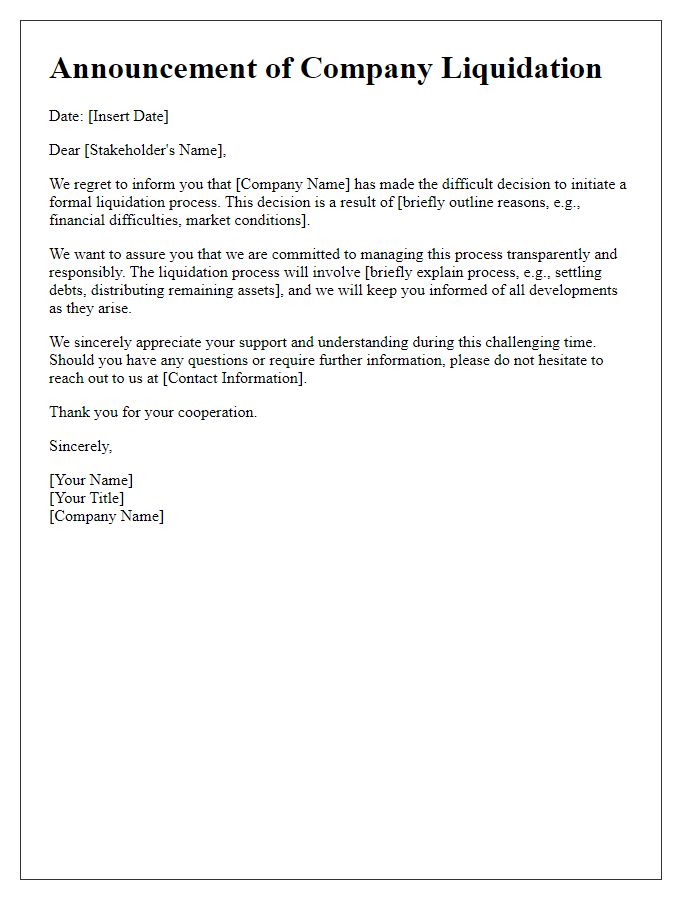
Letter template of closing remarks for clients regarding company liquidation.
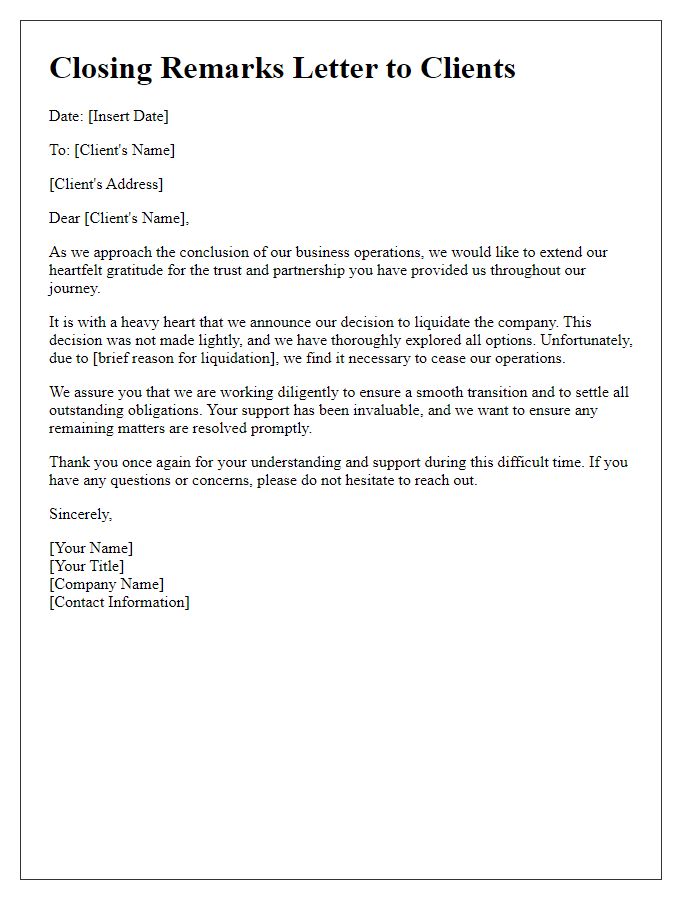
Letter template of update for shareholders on company liquidation status.
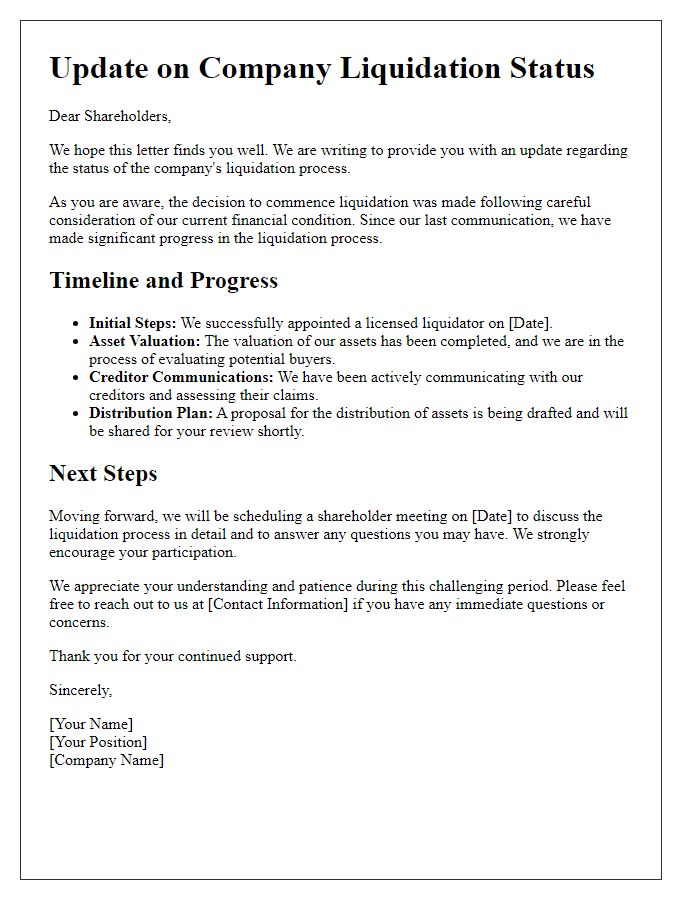
Letter template of official letter concerning company liquidation process.
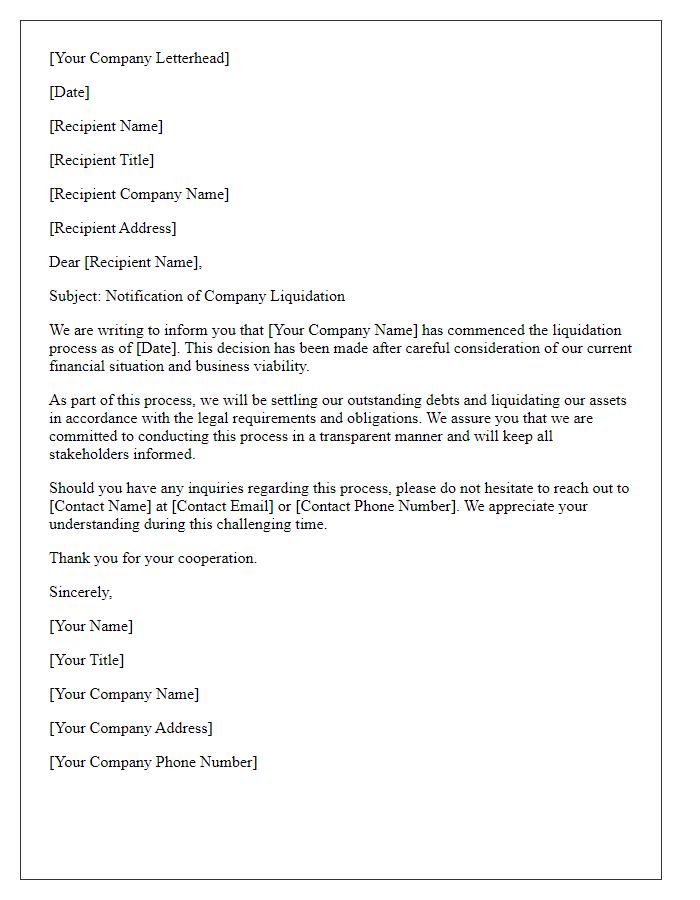
Letter template of advisory communication for suppliers about company liquidation.
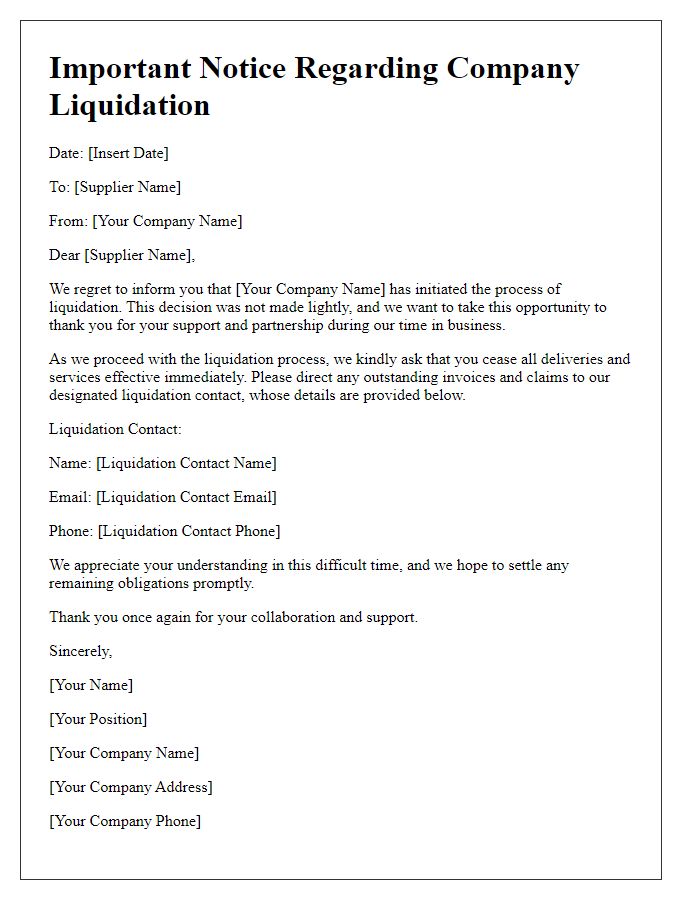

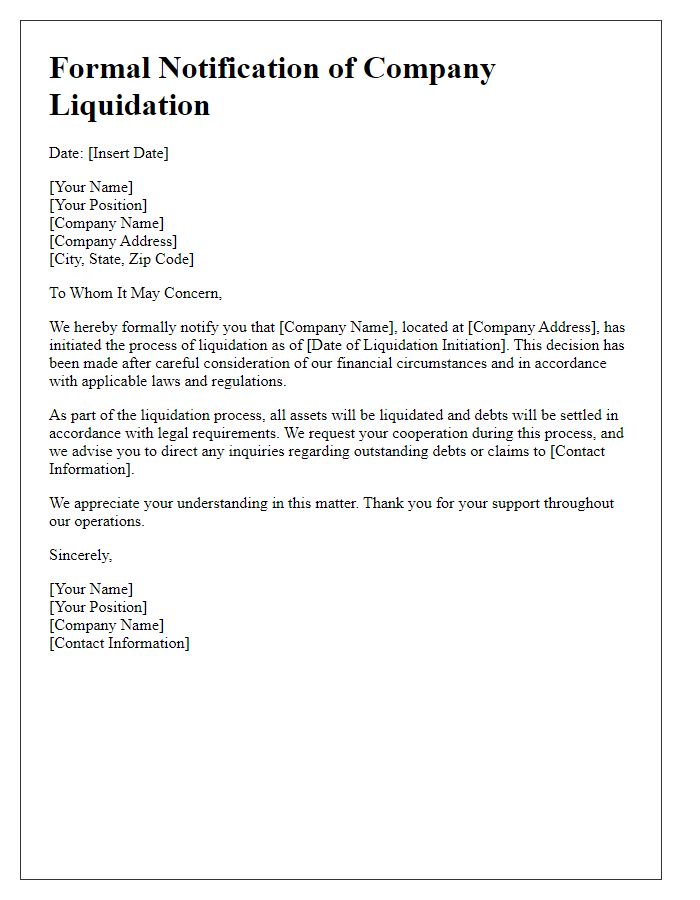
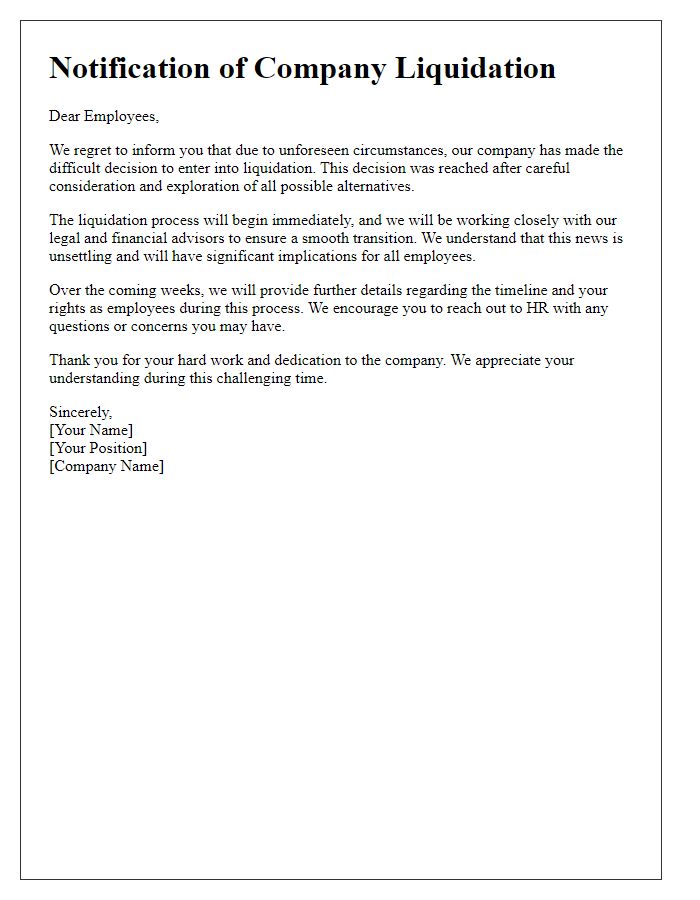
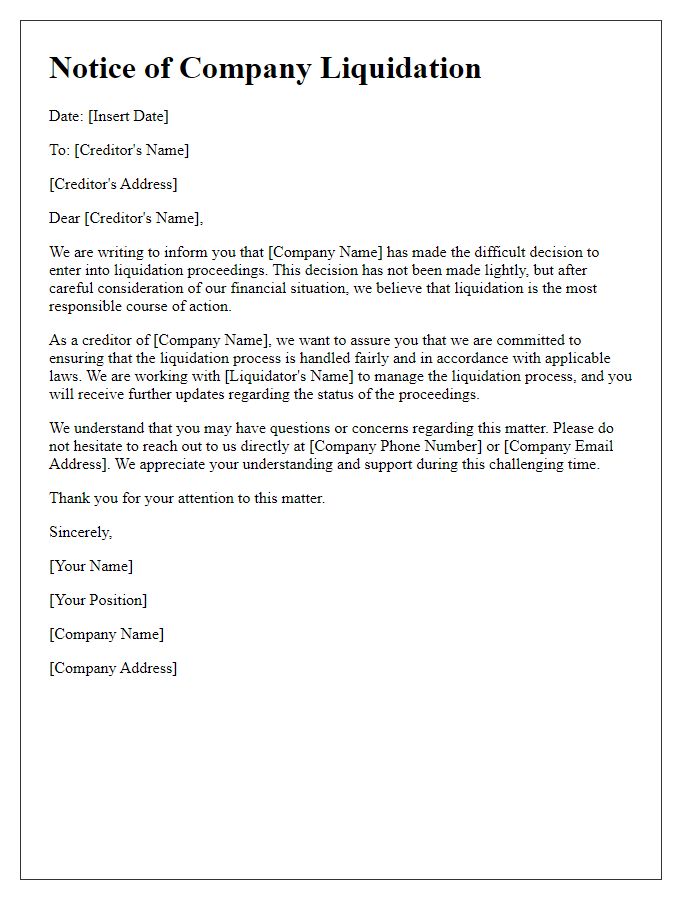
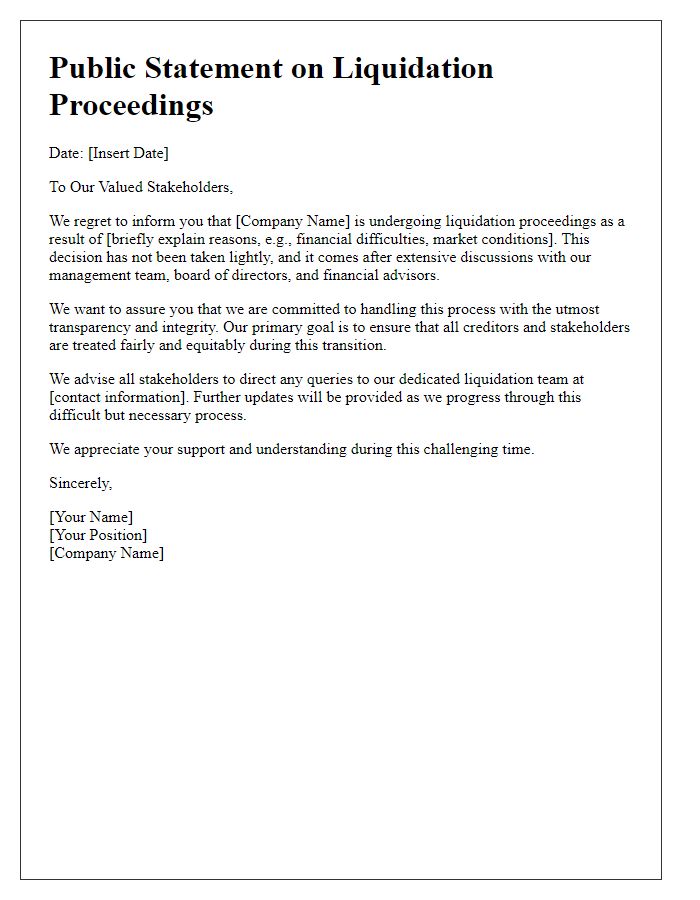
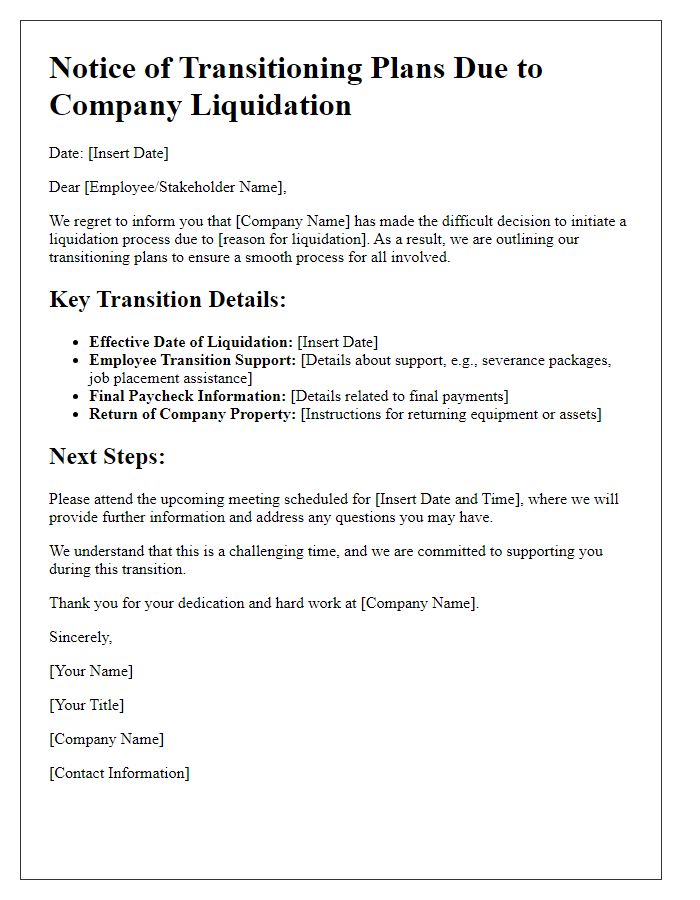


Comments